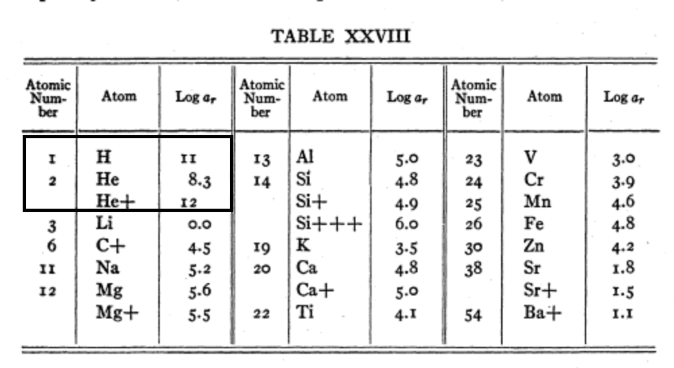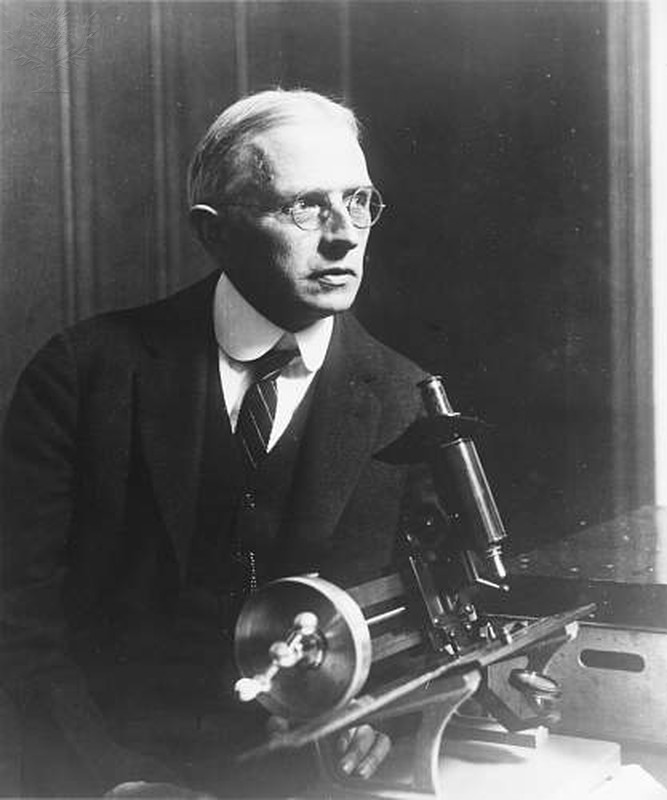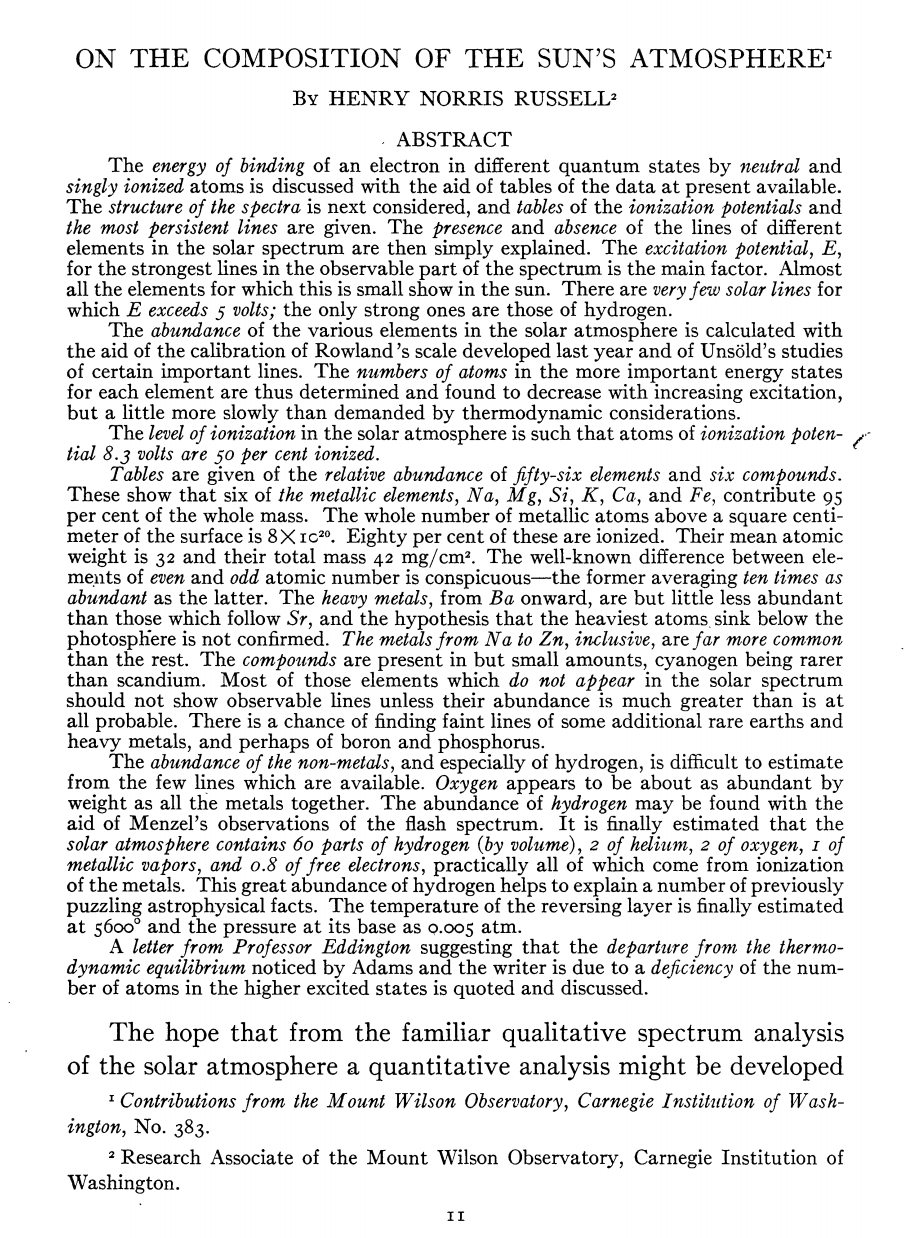Cecilia Payne Gaposchkin's "Stellar Atmospheres" explored her two years' worth of research "on stellar temperatures and the astrophysical abundance of the chemical elements," breaking barriers in previous beliefs that the composition of the universe was as complicated as that of the earth (Payne-Gaposchkin [pg# 165]).
Stellar Atmospheres
"What really inspired me was the announcement which I heard before I left Cambridge on the subject of the Adams Prize for the following year--the subject was the study of matter at high temperatures. And I said to myself, “I will write a paper on the observational study of matter at high temperatures,” which words you will find on the title page of “Stellar Atmospheres” and that is the reason why it was there."
~Cecilia Payne-Gaposchkin
<- Click on this image for more information!
With this PhD thesis, Payne discovered that the stars "are made almost entirely out of hydrogen" (Payne-Gaposchkin [Stellar Atmospheres]).
"A hydrogen line displays wings that may extend to thirty Angstrom units on either side of the center. The energy contributing to the wings is evidently light coming from hydrogen atoms with a frequency that deviates somewhat from the normal. Atoms with small deviations are more numerous than atoms with large deviations, and therefore the light received from them originates in a higher effective level" (Payne-Gaposchkin [Stellar Atmospheres]).
Link Block

Table of the Abundance of Elements in Stars [Image courtesy SAO/NASA Astrophysics Data System]
"I was shocked by how much of the universe is hydrogen"
Opposition
Despite her incredible discovery, Cecilia faced much opposition and little recognition.
The "Russell Era"

Henry Norris Russell, Image Courtesy Britannica.
Henry Norris Russell was an American astronomer who disregarded Payne's conclusion.
"Henry Norris Russell strongly opposed this conclusion and convinced to omit it from my thesis."
~ Cecilia Payne-Gaposchkin
However, after rejecting Payne's conclusion for years, "Russell...decided in 1929 that hydrogen was the commonest element in the Sun. Though his papers cited Payne's work as support for his result, the damage could never be fully undone" (Payne-Gaposchkin).
"The abundance of hydrogen may be found with the aid of Menzel’s observations of the flash spectrum"
"The obvious explanation—that hydrogen is far more abundant than the other elements—appears to be the only one"
~Henry Norris Russel
"The only thing I remember is saying to Eddington that I was surprised to find how large a proportion of the material of the universe is hydrogen and he smiled and said, 'Well, that is on the stars, but you don’t know that it is in the stars'” (Payne-Gaposchkin).
"I have come to believe the only honorable form of affirmative action in the context of 'encouraging young people to go into science' is to make sure that the obstacles look just as large to white males as everyone else"
~ Cecilia Payne-Gaposchkin

